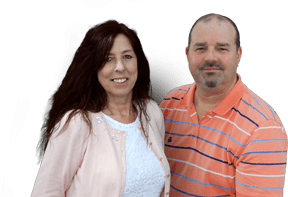How Initial IT Built a Two-Decade Long Track Record as a Premier MSP in Denver
Twenty years in business is a milestone in any company's history. Seventy percent of new businesses fail by their tenth year, according to an analysis of SBA data. Some estimates put the tech industry startup failure rate even higher. So, for a managed service provider (MSP) to thrive for 20 years is quite an accomplishment. It takes a lot of hard work to get there.
Initial IT began operations a month before September 11th, 2001. Fortunately, it was able to weather the economic downturn following the terrorist attack and grow its client base in the Architecture, Engineering, and Construction (AEC) industry. The company was an Autodesk reseller and IT support services provider. But eventually, Initial IT's owner and CEO Jack Smith split the company, with a former partner taking the Autodesk operation and Smith retaining the IT support services in 2016.
Adapting to the changing environment
One reason why Initial IT has been successful for two decades is its ability to adopt new technologies and bring them to bear on behalf of its clients. When Initial IT started, in the wake of Y2K and September 11th, the company was supporting NT 4.0 workstations and servers. Formerly in engineering, Jack Smith, now the owner of Initial IT, fell into IT after providing support for a colleague. At the time, IT as a field was still young, as was the Internet. And even though technology has evolved since those early days, Initial IT has been following what are now established best practices since then.
"I look back to Windows Small Business Server when it started, and you know, Microsoft's whole premise was everything, in one box right," Smith reflected in a recent interview with Ulistics' The MSP Show. "And even back then, we were telling people that's great but not great. If you power the thing off, you're done. So, even 20 years ago, we were doing multiple server environments for redundancy. And now it's just commonplace that you don't think twice about having a host and a replicator server or the cloud or anything like that. And we did it 20 years ago with Small Business Server."
Unlike Initial IT, Small Business Server is no longer around along with many other technologies, like the BlackBerry and Windows Phone, for which the company has provided support. Part of Initial IT's longevity stems from differentiating itself from the many small shops to one primarily focused on the Denver AEC community. Having worked with AEC industry-standard software, Smith credits "the knowledge of those particular [programs], how to operate them and the demands that they place on the hardware positioned us in a great spot to support" client needs. With their software experience, Smith and his former partners could troubleshoot technical challenges much more effectively than competitors.
Cultivating IT expertise
Having that deep knowledge is critical. Smith notes that the AEC community is full of "very intelligent end-users" who are "willing to sit down and have a technological conversation with you about how they can become more astute or how we can support them better. They'll even sit down and talk with us and say, 'This is our workflow process," because they understand our background and our experience with the products they use every day. Other industries that we've been in and out of over the years don't necessarily operate that way."
But one of the biggest keys to success is focusing on client success. The collaborative work Initial IT does with their clients "forces us to keep our level of service at a very high level," Smith notes. "What I love about it is it gives us that opportunity to continually make a human
connection with somebody." We can "sit down and have a conversation again with an end-user and talk about what their individual pain points are [...], and we can make their life better. That's really what this is about for us." Given that most of Initial IT's clients have been around for at least 12 or 13 years, the company's client focus has definitely been integral to its success.
Giving back
One of Initial IT's other distinguishing characteristics is its philanthropy. While in college, Smith's daughter became involved with the Global Medical Brigades, which inspired Smith. Smith initially participated in a charity bike ride for St. Baldricks, which performs cancer research focused on pediatric patients and the Special Olympics in Colorado. He then developed a website that connects people to local volunteer opportunities, charities, and philanthropic activities. They've also been working with the National Organization of Minority Architects to drive awareness of the organization. And Smith works with vendors to drive resources to local causes.
Reflecting on Initial IT's longevity and the industry's future
When I asked what advice Smith would give a younger version of himself, Smith instead shared his biggest takeaway from the best two decades. "The one thing that I have learned over the last 20 years is that business is all about relationships. People say that all the time. But I like to think that I'm proof of that.
"I don't have a business degree. I didn't know how to run a business. None of us did. And it was by the grace of our client base and the relationships that we just built with them that got us where we are today and continues to drive us forward. I think my advice to anybody would be to focus on the people in your organization and your client base. The technology or whatever it is you do for them will follow suit.
"I think the key is just to put your faith in people and always do the right thing and always stand by what you do. I think that's all you really have in this life."
Smith also foresees the industry has a long future ahead. He notes that no matter how technology advances, people and organizations will still need help using technology to help them accomplish their vision and goals at the end of the day. "Just as software outpaces hardware, technology outpaces our ability to use it," he says. "That's not a bad thing. There's always going to need to be somebody there to help somebody else. Five years from now, the role of the MSP is going to be very different, and I'd like to believe it's going to be a lot more humanized than it is now."
That's a sentiment I definitely agree with. Throughout my career, I've worked directly with clients and know how important it is to understand their needs and pain points in being able to provide excellent service and build long-lasting client relationships. I've taken that insight along with me on my own professional journey and keep it top of mind when working with MSPs at Ulistics to develop the marketing strategies they need to win.
Interested in learning how best to position your MSP in your market and industry and build trusted client relationships that can keep you in business for decades? Contact us todaycontact us, and let's schedule a time to chat.



